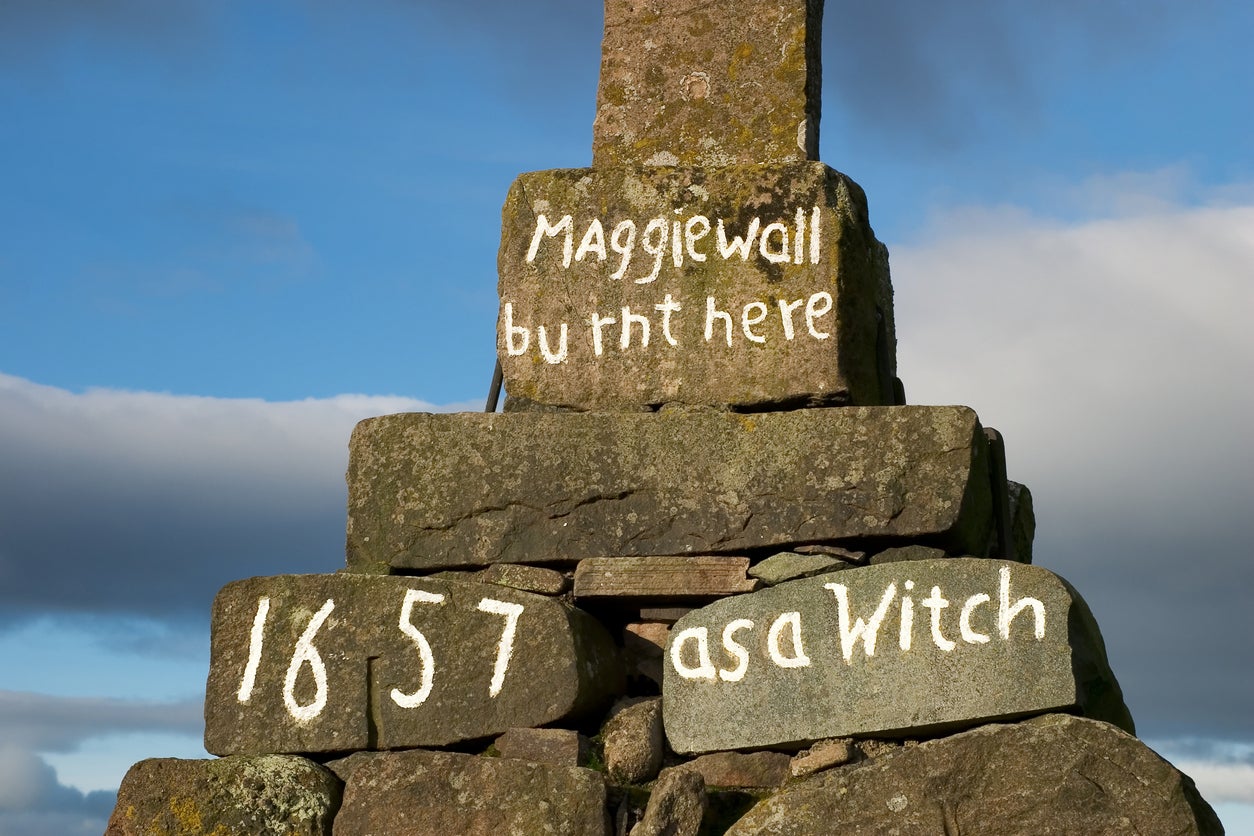Scotland may be set to pardon women accused of witchcraft
‘We think it’s apt that we recognise the past history of women if we want to go forward and do better,’ says campaigner

Your support helps us to tell the story
From reproductive rights to climate change to Big Tech, The Independent is on the ground when the story is developing. Whether it's investigating the financials of Elon Musk's pro-Trump PAC or producing our latest documentary, 'The A Word', which shines a light on the American women fighting for reproductive rights, we know how important it is to parse out the facts from the messaging.
At such a critical moment in US history, we need reporters on the ground. Your donation allows us to keep sending journalists to speak to both sides of the story.
The Independent is trusted by Americans across the entire political spectrum. And unlike many other quality news outlets, we choose not to lock Americans out of our reporting and analysis with paywalls. We believe quality journalism should be available to everyone, paid for by those who can afford it.
Your support makes all the difference.Scotland could be set to posthumously pardon thousands of women who were accused of being witches and subsequently executed between the 16th and 18th centuries.
Under the Witchcraft Act of 1563, an estimated 4,000 people – 84 per cent of whom were women – were tried as witches between then and 1736, and more than half of them were executed.
Campaign group Witches of Scotland presented a petition signed by more than 3,000 people to the Scottish government calling for the pardon of and apologies to all those accused.
Claire Mitchell QC, founder of the group, started the campaign after recognising the miscarriage of justice in such cases and the often-ignored history of women.
She told The Independent: “Not only do we not know the great things women have done, but we also don’t know the terrible histories and miscarriages of justice done to women. I include men in that, but the vast majority of people accused of witchcraft were women, so, I thought we could really do something about this.”
Ms Mitchell’s two-year effort, alongside co-campaigner Zoe Venditozzi, called for a governmental pardon for those convicted, an apology for all those accused and a national monument in their memory.
The group’s petition, presented to the Scottish parliament, is backed by MSP Natalie Don, and Ms Mitchell is optimistic the government will act.
“We are hopeful that parliament will make this happen by International Women’s Day 2022 – we think it’s apt that we recognise the past history of women if we want to go forward and do better,” she said.
“We also think it’s particularly important because the issue of witchcraft is still a very large one in various countries around the world. This July, the United Nations passed a resolution calling on countries to deal with the problem of witchcraft accusations.
“Many people, often those from vulnerable groups in society, are being singled out as witches… so it’s a real issue that unfortunately, because of the pandemic, is on the rise,” she said.
In Scotland, one of the thousands of people who were accused of witchcraft between 1563 and 1736 – when the Act was in place – was Lilias Adie, a woman from the coastal village of Torryburn in Fife.
Ms Adie, who died in prison without trial after being accused of witchcraft and fornicating with the devil, is the only person accused of witchcraft in Scotland with a known grave.
Ms Mitchell said: “It’s really important to send out a symbolic message that we, as a society, recognise the wrongs done to people by othering them, by calling them witches and accusing them of being responsible for the wrongs that were happening in society. We want to send out a strong message that that shouldn’t be happening.”
Join our commenting forum
Join thought-provoking conversations, follow other Independent readers and see their replies
Comments